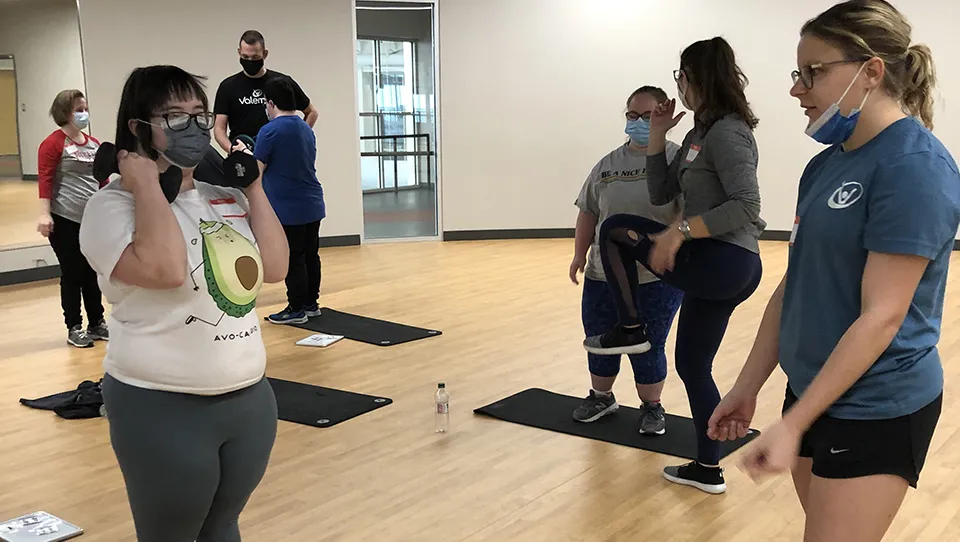Safe and In Control: Trauma-Responsive Care
- Services
- News

Moving from an emotional reaction to a collected response
Trauma-informed care (TIC) has become a bit of a buzzword in the I/DD community, but wouldn’t it be great if there was something even better? Well, there is! It’s called trauma-responsive care (TRC), and it is used every day at Boundless.
Trauma-informed care had its roots in the 1970s, when trauma began to be studied as an important part of psychology. TIC acknowledges the widespread impact of trauma and recognizes the signs and symptoms, but it does not lay out specific steps to help people cope with trauma. Being trauma-informed is a great start, but to help traumatized people, care providers should also know how to respond to emotional reactions to trauma.
Trauma-responsive care takes trauma into account, but it also seeks to appropriately address the associated emotions. By understanding how the brain works, we can help the people we serve settle their emotions and then solve the problem at hand. By using TRC long-term, brains can be retrained to heal from trauma by teaching new thought patterns.
A central piece of TRC is that people must feel safe, connected to other people, and in control of their lives. In traumatic situations, these conditions are not present. When a situation arises that once again removes one or more of these conditions, it triggers a traumatized individual’s emotional reaction to the situation. This triggered reaction is often described as exploding or shutting down, and all three conditions must be restored before that reaction can be settled.
It would be easy to assume that TRC is just for when someone is triggered. However, the best way for someone to recover from trauma is to feel safe, connected, and in control at all times, not just during a triggering event. But if traumatized people should feel safe, connected, and in control all the time, not just while triggered, who should TRC be used with? Everyone, and all the time!
Because it is impossible to know who has experienced trauma, Boundless has woven TRC into the fabric of all its programs. It has become a universal precaution, with care providers helping all the people we serve feel safe, connected, and in control. Like using gloves when there’s a potential for bloodborne pathogens, this is a protective step that will not cause any harm if there’s no exposure. TRC will not hurt anyone, but it has a huge potential to help those who have gone through trauma, so it should be used in every interaction, especially in situations with the potential for strong emotions.
The TRC approach starts with the care provider themselves. They must first understand the process and apply it to themselves so that they can model those skills and coach others through the process. The acronym used for these skills is CALMER:
- Check-in – “what’s going on inside me right now?”
- Accept – not judging the feelings, thoughts, or viewpoints
- Lovingly-kind – positive self-talk, thinking kindly about yourself
- Mindful – awareness of the present moment without judgment
- Express – letting your feelings out
- Respond – doing something to change the situation
While in a stressful situation, this can be difficult to do. Like any other coping technique, it takes practice. Once Boundless employees have a good understanding of the techniques and can bring themselves through the process, they can start to model it and coach the people they serve.
The goal when modeling or coaching TRC is to move from the emotional reaction to a more collected response. Over time and with repeated TRC, the path from reaction to response shortens. Not only does it help individuals cope with trauma, it also rewires their brain as it relates to trauma. For the employees who use TRC and the CALMER skills on a regular basis, it also leads to higher job satisfaction. TRC is truly a win-win for Boundless employees and the people we serve.
If you're interested in learning more about trauma-responsive care, be sure to check out the most recent episode of Well-Being: A Boundless Podcast. Guests Alicia Boreman, Boundless senior quality assurance manager and licensed professional clinical counselor, and Andrea Ryan, Boundless behavioral therapist and licensed professional clinical counselor, discuss its benefits with host Scott Light.








